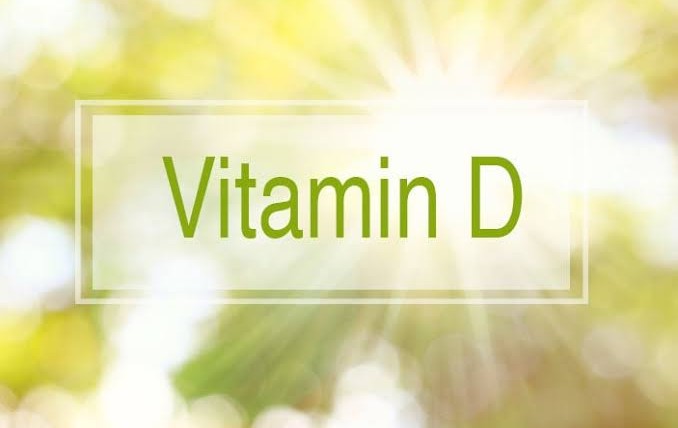Mango, for most people, is considered the “king of fruits”, not only because of its delicious taste but also of it’s nutritional value.
[lwptoc]
Who doesn’t love mango, anyways? Native to Southeast Asian countries, this fruit comes in different types, each type has its respective unique characteristics such as shape, size and color.
Most of Southeast Asians cultivates this fruit and earn money from the fruits by selling fruit itself or developing it into many other delicacies.
Indeed, most tourist will notice how popular delicacies made from mango are these days.
Nutritional Benefits of Mango
Mango is associated with improved immunity, good digestive health, improved vision, and lowered risk of cancers. Mango can even protect against radiation damage.
This is because mango is rich in so many nutrients which are, among others, calories, vitamin c and many different kinds of vitamins, copper, carbohydrate, protein, potassium, riboflavin, magnesium, and thiamine.
Some amount of pantothenic acid, calcium, iron, selenium, and phosphorus can also be found in mango.
It is not enough that we discuss the vitamins and minerals in mango.
What is more important is the effects of this vitamins and minerals and how our body can react to the different health challenges that come our way every single day of our lives.
Of course, some diseases are influenced by so many factors such as genetics and lifestyle but the fact that mango has a lot of nutritional benefits means something to our bodies.
Let’s discuss them one by one.
Benefits of Mango for Health
1. Mangoes are Rich in Antioxidants
Mango contain a plant compound called ployphenols which functions as antioxidant.
Antioxidant are very important in the body because antioxidant help the body fight bacteria, get rid of free radicals that damage the body and fight off infection.
Thus, when the body is protected from inflammation, the body is not susceptible to many other diseases associated with it such as chronic diseases and aged related diseases.
ployphenols come in different types.
These are catechins, anthocyanins, quercetin, kaempferol, rhamnetin, benzoic acid, and mangiferin.
Among these, mangiferin is called a super antioxidant because of its powerful properties.
In some studies, it was found that this compound mangiferin countered damage caused by free radicals which are different types of cancers, diabetes, and all other illnesses.
2. Mangoes Boost Immunity
Mango is a good source of nutrients which are considered to boost the immunity system.
For one, mango is rich in Vitamin A which is essential in achieving a healthy immune system.
Infact, it is found that 165 grams of mango provides 10% of the daily vitamin A requirement.
When the body does not get enough vitamin A it needs, there is a higher risk of getting an infection.
It is also rich in vitamin C which can help produce white blood cells and help these cells work more effectively.
White blood cells are disease-fighting cells.
Aside from these vitamins, mango also has vitamin K, and vitamin E, several B vitamins, and folate.
3. Mangoes Help Improve Digestion and Digestive Health
What makes the digestive organ healthy?
There is an enzyme called amylases which aid in the absorption of food by breaking down large food molecules.
More active in ripe mangoes, it also break down the complex carbs into different sugars which are glucose and maltose.
Another characteristics of mangoes which help in digestive problems is the water content and dietary fiber in mangoes.
Because of the dietary fiber in mangoes, the symptoms of chronic constipation are relieved.
The dietary fiber also help in relieving the symptoms of diarrhea.
4. Mangoes Support Heart Health
Mango is know to contain nutrients for a healthy heart.
There is a unique antioxidant called mangerin found in mangoes which animal studies reveal to help protect the heart cells against inflammation, apoptosis, or controlled cell death and oxidative stress.
It must be noted that inflammation is a very important factor that must be looked into when it comes to heart health.
When there is inflammation in the heart, the blood vessels constrict and normal blood flow which is important for heart health is disrupted.
Mango contains magnesium and potassium which are believed to promote lower pressure levels, relax the blood vessels and keep a healthy pulse.
It also help lower blood cholesterol, triglycerides, and high levels of free fatty acid.
5. Mangoes Lower the Risk of Some Types of Cancer
Mango is known to contain anti-cancer compounds known as plyphenols.
This compound protects the body against oxidative stress which is one of the reasons for some types of cancer.
According to some studies conducted on animals, the ployphenols in mangoes reduce oxidative stress which stops the growth of cancer cells or destroys the same.
Some of these types of cancers pointed by the studies are cancer of the colon, lungs, prostate, and breast cancer and leukemia.
Another compound found in mangoes are mangiferin which also has anticancer effects.
This compound is found to reduce inflammation, stop the growth of cancer cells and protect the cells from oxidative stress.
6. Mangoes Lower Cholesterol
Mango is also know to lower cholesterol. It contains fiber pectin which brings down LDL (low-density lipoprotein) or bad cholesterol.
LDL is the main cause of blocked blood vessels which causes hypertension.
Thus, eating mangoes everyday will surely help lower the cholesterol level.
7. Mangoes Help Improve Eye Health
Poor eye health is a big problem for most of us as it surely disrupts the everyday activities.
Eating fruits and vegetables which can help improve eye health is one good decision you make for your eye.
Eating mangoes for instance is a good habit you have to make as it is full of nutrients which are good for the eyes.
For starters, mangoes contain vitamin A which is known to be essential for eye health.
Lack of this vitamin in the body can lead to severe eye deficiencies such as having dry eye or suffering from night-time blindness.
Mangoes also contains two main nutrients that can help the eye.
These are lutein and zeaxanthin which help the eyes by accumulating in the retina of the eyes so the retina can convert the light into the brain signals.
The brain can then interpret what the eyes can see. Lutein and zeaxanthin also act as a natural sunblock which absorb excess light.
In short, these compounds protect your eyes from harmful light.
8. Mangoes Help Improve Skin and Hair Health
First and foremost, vitamin C is not only to improve the immune system but also is essential in promoting the hair and skin.
This is because vitamin C is needed in making collagen which is a protein that gives structure to the hair and skin.
It is also responsible for protecting the skin from developing wrinkles and suffering from sagging.
In addition, vitamin A also helps the hair produce sebum. Sebum is a liquid that helps moisturize the scalp keeping the hair healthy.
Aside from these vitamins, it has been mentioned several times that mango is rich in ployphenols which is an antioxidant. Antioxidant are also responsible for giving the good health.
9. Mangoes Help in Weight Loss
Eating mangoes everyday also helps in losing weight. Mango skin can help fight fats.
Mangoes contain phytochemicals that are found in the skin of mangoes. These phytochemicals act as natural fat busters.
The flesh of the mango also contain dietary fibers which induce a feeling of fullness.
This means that when you eat mangoes, the feeling of being fullness lasts for a long time so you don’t feel the need of eating again which then facilitate weight loss.
10. Controls Blood Sugar
Blood sugar spikes and drops are common in people who are overweight or obese, and this mechanism is implicated in insulin resistance and metabolic syndrome, which affects the development of diabetes.
11. Protect Against Hiv
Some recent studies are using an extract from mango, called mangiferin, as a treatment for HIV.
Mangiferin can help your immune system battle HIV infection, even the drug-resistant kind.
12. Fertility
Mango contains vitamin E, which is important in the health of reproductive organs.
13. High in Fiber
Mango is very high in fiber while being low in sugar, so it is slower to impact blood glucose, which means you don’t get the blood sugar spike.
14. Helps with Smoother Elimination
The increased amount of fiber is highly beneficial for keeping the intestines moving at a regular pace.
15. Helps Metabolism
That same fiber is excellent at fueling probiotic bacteria that live in your gut.
16. Contains Enzymes
Mangoes and their peels contain enzymes that help in the breakdown of carbohydrate, protein and fat and can make it easier for your body to absorb nutrients from food.
17. Improves Brain Functions
Mango has been shown to maintain neuronal integrity and preserve cognitive function.
This could mean a reduced risk of age-related cognitive decline and Alzheimer’s.
18. Improves Joints
Since vitamin C is a necessary part of the creation of collagen in our bodies, eating more of this fruits can help us make more collagen.
19. Strengthens Bones
This golden fruit contains vitamin K, which is essential for strong and healthy bones.
20. Helps Prevent Anemia
Mangoes are high in iron, which helps to prevent anemia.
21. May Prevent Asthma
One of the nutrients mangoes contain, beta-carotene is known to help prevent asthma symptoms.
22. Helps Prevent Strokes
Since mango is able to reduce blood pressure and is high in vitamin C, which strengthens arteries, this fruit can help reduce the risk of this life-threatening disease.
23. Promotes Workout Recovery
Mango’s micronutrients and electrolytes are ideal for helping muscles heal after a hard workout and replenishing your body’s store of these essential elements.
Conclusion
The benefits of mango for our health are just too many to mention but these are basically the most important ones.
Take note the fact that mangoes are a very good source of vitamins, nutrients, and antioxidants which is already a big thing for the body.







